Training specific risks for workers
The specific risks are the risks to which workers are exposed in particular tasks also in relation to the specific contractual type. The specific risks are risks of the context in which the activity is carried out, for example, the risks associated with the use of a particular type of equipment rather than another depending on where it works, risks during use or the handling of an acid during a particular work phase.
Legislative Decree 81/08 to Art. 28 c. 2 letter f) provides that:
(subject to risk assessment) identifying tasks that may expose workers to specific risks requiring a recognized professional capacity, specific experience, adequate training and training.
and with Article Art. 36 c. 2 (a): The employer shall also ensure that each employee receives adequate information:
(a) the specific risks to which it is exposed in relation to the activities carried out, the security regulations and the relevant corporate provisions;
b) the hazards associated with the use of hazardous substances and mixtures on the basis of the safety data sheets provided for in current legislation and good technical standards;
c) the measures and activities of protection and prevention adopted.
Which specific risks can be exposed to workers
According to Legislative Decree 81/08, the employer must organize specific training courses to protect workers. Among these types of risks, Frange proposes:
Use of self-propelled trolleys with on-board driver
Electrical Workers PAV PES norm CEI 11-27 for electrical work
I work securely away from the ground
Workers in Quota and DPI III ° cat.
Land Moving Machine Addicts
Enable Use Phytosanitary Products – Professional User
Works in suspected or contaminated environments
and their updates.
 Activités à risque d’accident majeur – Directive Seveso III
Activités à risque d’accident majeur – Directive Seveso III Activities at risk of a major accident – The Seveso III Directive
Activities at risk of a major accident – The Seveso III Directive ATEX Directive Course
ATEX Directive Course Confined spaces training course
Confined spaces training course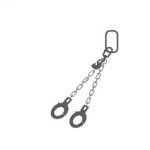 Course for quarterly checks on ropes, chains and lifting accessories
Course for quarterly checks on ropes, chains and lifting accessories Course for workers involved in operating mobile cranes on wheels with telescopic or swingable jib
Course for workers involved in operating mobile cranes on wheels with telescopic or swingable jib Course on driving and using pallet trucks
Course on driving and using pallet trucks Earth moving Equipments safety training course
Earth moving Equipments safety training course Earth moving equipments safety training course – refresher
Earth moving equipments safety training course – refresher Eco-compatible guide course
Eco-compatible guide course Electrical safety training course
Electrical safety training course Electrical safety training course – refresher
Electrical safety training course – refresher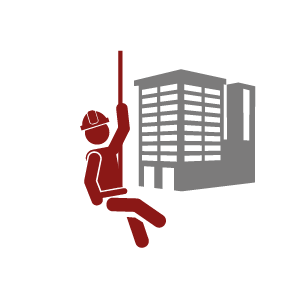 Fall protection training course and European PPE category 3
Fall protection training course and European PPE category 3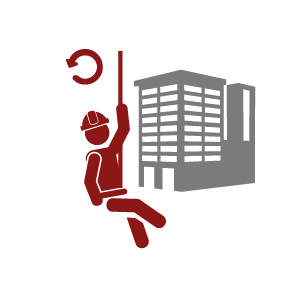 Fall protection training course and European PPE category 3 – refresher
Fall protection training course and European PPE category 3 – refresher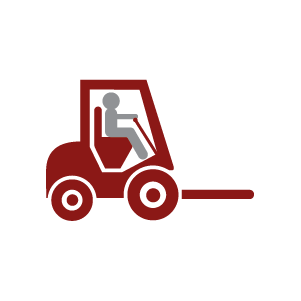 Forklift training
Forklift training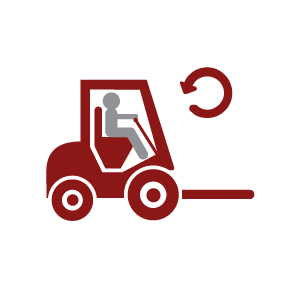 Forklift training – refresher course
Forklift training – refresher course Path to reduce stress and support well-being through mindfulness
Path to reduce stress and support well-being through mindfulness Phytosanitary Product Use Enablement Course – Professional User
Phytosanitary Product Use Enablement Course – Professional User Phytosanitary Product Use Enablement Course – Professional User – refresher course
Phytosanitary Product Use Enablement Course – Professional User – refresher course Reach regulation: training on the safe use of diisocyanates
Reach regulation: training on the safe use of diisocyanates Refresher course for operators operating mobile elevating platforms (PLE) without stabilizer
Refresher course for operators operating mobile elevating platforms (PLE) without stabilizer Refresher course for overhead crane operators
Refresher course for overhead crane operators Refresher course for the use of self-propelled forklifts with driver on board and with telescopic boom
Refresher course for the use of self-propelled forklifts with driver on board and with telescopic boom Refresher course for Work in Suspected Pollution or Confined Environments
Refresher course for Work in Suspected Pollution or Confined Environments Related work stress assessment
Related work stress assessment Safe driving training course
Safe driving training course Training course for mobile crane operators
Training course for mobile crane operators Training course for operators in charge of elevating mobile platforms (PLE) with and without stabilizer
Training course for operators in charge of elevating mobile platforms (PLE) with and without stabilizer Training course for operators in charge of elevating mobile platforms (PLE) with stabilizer
Training course for operators in charge of elevating mobile platforms (PLE) with stabilizer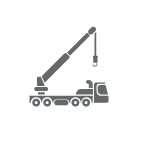 Training course for operators in the management of truck-mounted cranes
Training course for operators in the management of truck-mounted cranes Training course for operators in the running of Rotating Tower Cranes
Training course for operators in the running of Rotating Tower Cranes Training course for operators in the use of compactor
Training course for operators in the use of compactor Training course for operators in the use of industrial scrubber dryers
Training course for operators in the use of industrial scrubber dryers Training course for operators in the use of scaffolding
Training course for operators in the use of scaffolding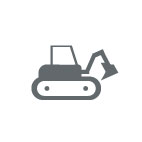 Training course for operators of Mini Hydraulic Excavators (operating mass <6000 Kg)
Training course for operators of Mini Hydraulic Excavators (operating mass <6000 Kg)- 1
- 2





















